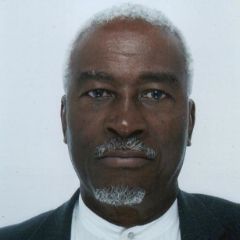It is always heartening to witness the emergence of new talent, particularly when it is a group of musicians confident enough to tackle complex scores from memory and deliver a mesmerising performance. Such a group is Ensemble Explore, nurtured at the Royal College of Music, whose promise has already been decorated by an award from the Ernst von Siemens Musikstiftung. Their collaborator for the evening was the excellent Lotte Betts-Dean, an Australian mezzo-soprano whose performances have attracted their own garlands. The concert, part of Kings Place’s Sound Unwrapped season, fully lived up to the “Sensations of Tone” billing.
The programme opened with Cassandra Miller’s For Mira (dedicated to Mira Benjamin), a fun, five-minute piece for solo violin that is a reworking of a computer-made transcription of an unplugged performance of Kurt Cobain singing Where did you sleep last night. It’s a kind of “hoe-down for one” and was served-up with great élan by David López Ibáñez, his gestures somewhere between the grace required for a Bach chaconne and the wild passion of Cormac McCarthy’s demonic Judge Holden. As a curtain-raiser it should have prepared the audience for “a bit of a do” but what followed was a visit to the Astral Plane for 90 minutes of blissful repose. I’m sure Miller did not intend her piece to be a seducer of souls!
Rebecca Saunders, also a recipient of an Ernst von Siemens award (and many other accolades) is one of the leaders of European modernism whose work is of a consistently high standard. Dating from 2009, Murmurs is a collage for nine players exploring her fascination with the outer limits of instrumental techniques and the inner world of near-silence and cold-darkness. The spatial polyphony of the piece – the members of the band stationed around the gallery, as well as on the stage – produced a series of fantastical sensations generated from a timbral palette of melodic fragments, gentle utterances of air, and the composers trademark harmonics. It was no mean feat to have brought off such a fine performance without the aid of a director.
Best known as a DJ, Beatrice Dillion also has a strong reputation for her highly-charged electronic music. Seven Reorganisations is her first fully-acoustic composition, here given in a version developed in collaboration with Ensemble Explore. The electronic work, such as the album Workaround, has a trance-like quality where ethereal samples are held in check by intense rhythmic loops; in the new piece the ethereal quality is still there, but the sounds have been liberated from the loops. To see the players perform that act of liberation, in the flesh, was to witness genuine engagement with the material – the animating human element that is always missing in purely electronic music.
Catherine Lamb’s Parallaxis forma was the stand-out piece in the programme. Beyond the origins of the esoteric title, the acknowledged influence of Hindustani music and the apparent references to colour theory and crystallography, the sheer beauty of the sound produced by the players was captivating. The focal point was the person of Lotte Betts-Dean, draped in a costume designed for extra-terrestrial ritual, and lit by a single spot – a tractor-beam drawing up the purple haze of her wordless melismas. Caressing her voice was the buzz of microtonal intervals, and the shimmer of overtones and harmonics lightly blown and nimbly fingered; the celebrant and the communicants in rapture!




